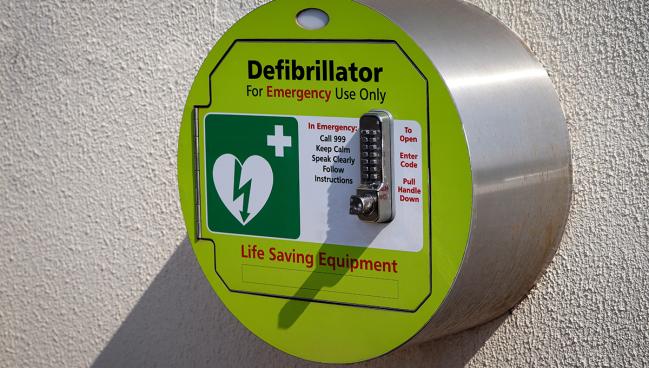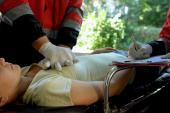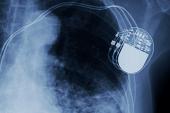ESC Revamps Guidelines on Ventricular Arrhythmias, Sudden Cardiac Death
Incorporating the mountain of data accumulated since 2015, this update is a “very timely one,” Jacob Tfelt-Hansen says.

BARCELONA, Spain—A focus on the public’s role in responding to out-of-hospital cardiac arrest, implantable cardioverter-defibrillator (ICD) indications, and upgraded recommendations for catheter ablation are among the many updates included in the latest iteration of guidance on ventricular arrhythmias (VA) and sudden cardiac death (SCD) from the European Society of Cardiology (ESC).
The document, which updates guidelines from 2015, incorporates “new insights into the epidemiology of SCD; new evidence on genetics, imaging, and clinical findings for risk stratification for VA and SCD; and advances in diagnostic evaluation and therapeutic strategies,” according to the writing group chaired by Katja Zeppenfeld, MD, PhD (Leiden University Medical Center, the Netherlands), and Jacob Tfelt-Hansen, MD, DMSc (Copenhagen University Hospital, Rigshospitalet, Denmark).
The revision is a “very timely one,” Tfelt-Hansen told TCTMD, pointing to all that has been learned over the past 7 years.
The document, endorsed by the Association for European Paediatric and Congenital Cardiology, features 136 completely new recommendations, along with 20 that have been changed. All in all, there are 50 tables of recommendations and more than three dozen figures, many providing algorithms to ease the evaluation and management of various conditions.
The new guidelines were introduced here during the recent ESC Congress 2022 and simultaneously published online in the European Heart Journal.
Though there remains a need for randomized data in many clinical areas covered by the document, “it’s a very practical guideline, and I do think it will change the way that people do diagnosis of certain diseases, use imaging, [and apply] treatment modalities,” Tfelt-Hansen said.
“Overall there’s going to be less ICDs, not a lot, but some fewer ICD implantations, and I see that the general cardiologist really can use this,” he added, pointing out that the guidance can be accessed through the ESC’s guideline smartphone app.
ICDs and Genetics
Among the new or changed recommendations, Tfelt-Hansen highlighted one that was downgraded as a notable update. In 2015, there was class I recommendation for placement of an implantable cardioverter-defibrillator (ICD) in patients with symptomatic heart failure (NYHA class II/III), an ejection fraction of 35% or less despite at least 3 months of treatment with optimal medical therapy and expected survival with good function of more than a year. The latest document gives it a class IIa recommendation, meaning that it “should be considered”.
The downgrade, Tfelt-Hansen explained, was supported by findings from the DANISH trial, which showed no reduction in all-cause mortality with versus without ICD implantation even though there was a significantly lower rate of sudden cardiac death. A later analysis suggested greater benefits of ICD implantation in patients 70 and younger.
Still, the guideline authors write, “the results of the DANISH trial emphasize the need for further refining the indication for primary prevention ICDs in contemporary dilated cardiomyopathy patients.”
Tfelt-Hansen also pointed to a “really novel” recommendation that brings genetics into the decision-making process around ICD implantation in patients with dilated cardiomyopathy or hypokinetic nondilated cardiomyopathy. A class IIa recommendation states that an ICD should be considered in patients with an LVEF below 50% and at least two risk factors from a list that includes pathogenic mutations in the LMNA, PLN, FLNC, and RBM20 genes.
In general, genetic testing is more prominent in the updated guidelines, with a new dedicated section. “Genetic and clinical testing should be undertaken only by multidisciplinary teams including professionals with skills to counsel on the implications and the uncertainty of results and experienced cardiologists able to direct testing to the correct phenotype,” the authors note.
AEDs, Autopsies, and Ablation
Another major aspect of the updated guidance is a focus on boosting the public’s response to out-of-hospital cardiac arrests. There are three new class I recommendations calling for greater access to automated external defibrillators (AEDs) where arrests are more likely to occur (eg, shopping malls, stadiums, public transport statins, and casinos); prompt bystander CPR; and promotion of community training in basic life support to increase rates of bystander CPR and AED use. In addition, a class IIa recommendation advises consideration of mobile phone-based systems to alert volunteers who can help when there’s a nearby cardiac arrest.
Tfelt-Hansen also singled out a strengthened class I recommendation for a comprehensive autopsy to be performed in all cases of unexpected sudden death, particularly among victims younger than 50.
The goal is to gather more information about the causes in order to bring down the number of future SCDs, he indicated, noting that the rate of autopsy varies widely from country to country. “There’s a lost opportunity in many cases,” he said. “There’s room for improvement and this initiative is something that we really want to work on in Europe.”
The guidance also includes new or upgraded recommendations around the use of catheter ablation across multiple clinical scenarios, which could have implications for increasing capacity within hospitals, Tfelt-Hansen said.
For example, there’s a new class I recommendation favoring catheter ablation over an escalation of antiarrhythmic drug therapy for patients with CAD and recurrent symptomatic sustained monomorphic ventricular tachycardia (SMVT) or ICD shocks for SMVT despite chronic amiodarone therapy. Ablation is also now recommended as first-line treatment for symptomatic idiopathic ventricular tachycardia/premature ventricular complexes from the RV outflow tract of the left fascicles.
Todd Neale is the Associate News Editor for TCTMD and a Senior Medical Journalist. He got his start in journalism at …
Read Full BioSources
Zeppenfeld K, Tfelt-Hansen J, de Riva M, et al. 2022 ESC guidelines for the management of patients with ventricular arrhythmias and the prevention of sudden cardiac death. Eur Heart J. 2022;Epub ahead of print.
Disclosures
- Zeppenfeld reports research funding from Biosense Webster.
- Tfelt-Hansen reports travel and meeting support from Abbott and Medtronic and direct payments from Leo Pharma. He is a member of the Danish Heart Foundation.





Comments